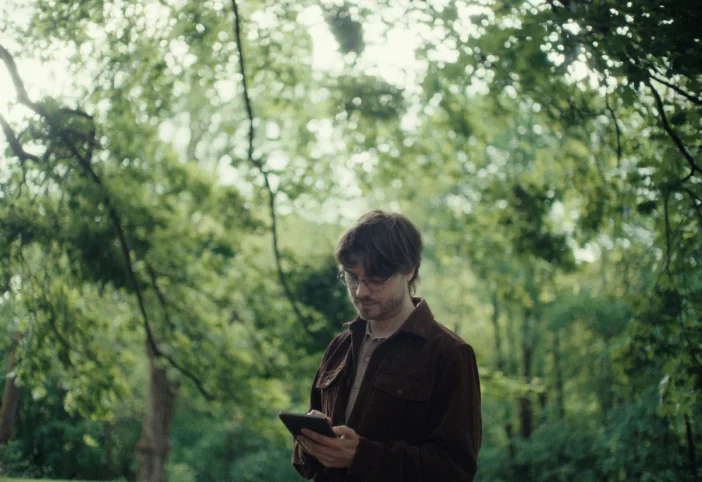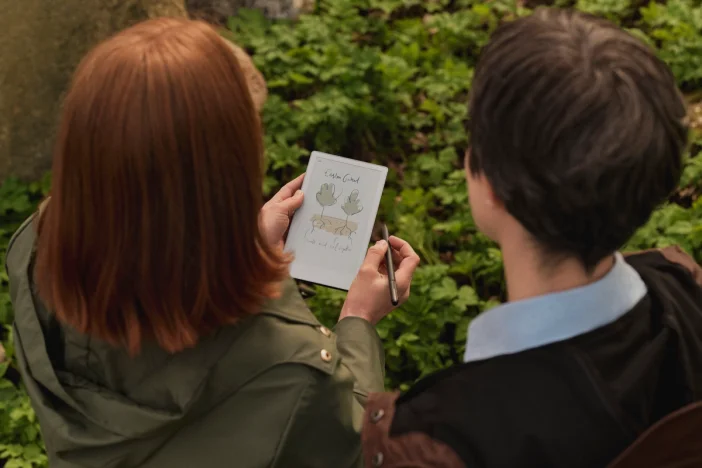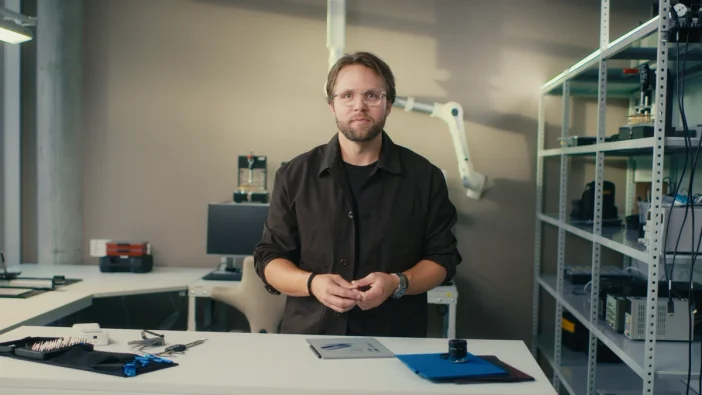Inside reMarkable
The reMarkable story
How a man from Norway turned his passion for Game Boys and paper into the world’s first tablet designed for better thinking.
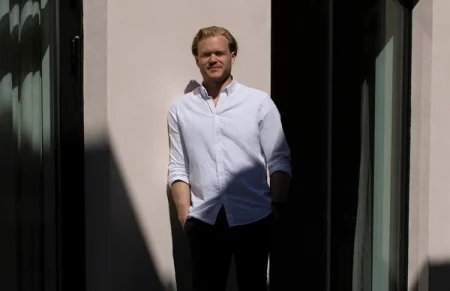
A new obsession
As soon as he could walk, reMarkable CEO and founder Magnus Wanberg was obsessed with technology. As a child, he wore away the keys on his family’s IBM PC and Nintendo Game Boy. By 18, he was building and selling computers out of his father’s garage.
While at university, Wanberg found it hard to focus when working on his laptop. It was too easy to go online or read emails. So he decided to leave his computer and phone at home, and work exclusively on paper instead.
“I would print out everything I needed and bring a stack of notebooks. Then I’d stay on paper all day. There’s nowhere to go on paper”
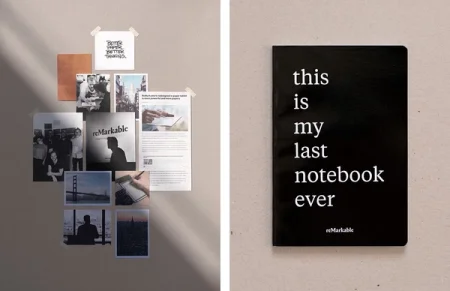
Lightbulb moment
Wanberg found he could think better on paper, but he amassed four boxes bulging with notebooks and loose sheets by the end of his degree. Standing over those boxes, he had the idea for technology that merged paper—as the best tool for thinking—with the digital world.
“Paper clutters a lot and you throw it away. You can’t reuse it, you can’t share it. I thought we could do better, and that’s what we’ve tried to do”
Enter reMarkable: technology that helps you think better. As Wanberg says, “At reMarkable we’re emulating paper. Not necessarily its physical aspects, but the qualities that make it so good for thinking.” In short: it’s paper, but updated for the 21st Century.
"Paper is the best invention so far for better thinking. It’s simple, easy to use, and forces you to focus. But those things aren’t necessarily linked to the material—they’re more about the method."
Distraction-free working
In the interests of better thinking and human-friendly technology, reMarkable 2 has a distraction-free design, without notifications or pop-ups, so that your train of thought is undisturbed while you work.
“We’ve taken a strong position on this,” says Wanberg. “We think social media isn’t good for better thinking. Neither is open access to web browsers, or email. We want to create a purified, streamlined workflow around thinking, ink on paper, and reading.”
“To be able to focus, concentrate, and create, you need to be mentally present. That’s what we mean by human-friendly—we try to protect your focus and concentration.”
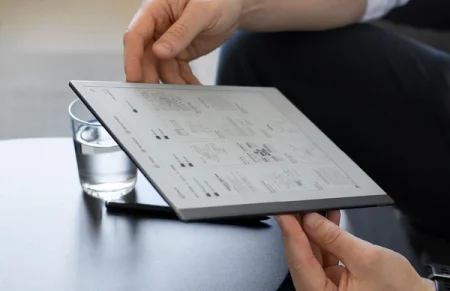
Take reMarkable anywhere
At 4.7mm, reMarkable 2 is the world’s thinnest tablet. It’s an impressive feat of engineering, but there’s a practical reason, too. “We belong in people’s bags,” says Wanberg. “We’re replacing the notebooks, documents and books that you have there, and we know that your bag has finite space.”
But thinness isn’t the only goal. reMarkable needs to be as reliable as paper, too. Paper always works and never runs out of battery. While reMarkable 2 needs charging occasionally, it has two weeks of battery and three months’ standby time, making it pretty close to the real thing.
reMarkable 2 also features a paper-like friction, making it feel a lot like writing on paper. There’s a practical reason for that feeling—writing with a plastic stylus on a slippery surface is so low friction that your hand has to compensate, which can be incredibly uncomfortable.
Once a nerd, always a nerd
At university, even if it meant surviving on noodles, Wanberg always made sure to get his hands on the latest gadget. And he wants people to crave reMarkable in the same way.
Yes, reMarkable helps with better thinking. But it’s also an object that you’ll love to use, and will become an intrinsic part of your life. It’s not quite a Game Boy, but it’s not far off.
